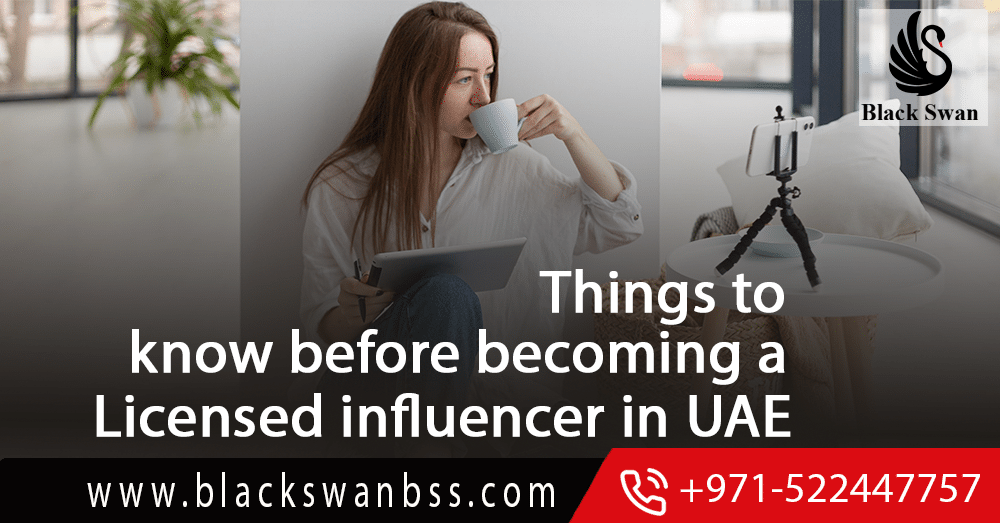A lot of speculation surrounds the new National Media Council Influencer licensing laws. Several influencers from Dubai to Abu Dhabi have been asking questions about what it means to become a licensed influencer in the UAE.
How would it affect the content on social media? Would they need a trade license along with the e-media license? Do I need to sign with an influencer agency to continue my business as an influencer?
All influencers need to know certain things before they obtain the special media “influencer” license.
The Basics Of UAE Media Law
When you are a social media content creator, and plan to pursue your career and profession, then you should get the full low-down on the laws that govern media in the UAE, having social media and the GCC region.
The Influencers must familiarize themselves with Emirati laws that govern defamation, photography, and privacy.
For instance, it is considered to be illegal to take someone’s photo without their consent. Many street style bloggers feature other people with their outfits on their platforms, this would potentially be an issue.
To make defamatory statements against another family, individual, or company would put you in some serious issue with the law. This might include a bad review of the restaurant, so food bloggers need to be mindful of the language they use while reviewing local eateries.
Privacy in the UAE seems a big deal. It’s illegal to spill someone secrets or disclose information without a source’s consent.
The Cultural Sensitivities
Content which is acceptable abroad might not be legal in the UAE, due to the cultural sensitivities of the country.
“The content encouraging sinful activity, or that is aimed at corrupting minors is considered illegal. It also extended to content that might negatively impact on social cohesion and peace, like content that stirs sedition or sectarianism, mocking the leaders of the nation, or that hurts national unity or social peace, “.
Influencers must avoid posting controversial content about politics, religion, world leaders, and “hot topics” on their social channels.
Advertising of alcohol is prohibited in the UAE. Influencers must be careful if they post sponsored content that includes a glass of “grape” in their hand, as it may appear that they’re advertising alcoholic products.
Only to Accept Freebies? A License Isn’t Needed
The developments in the influencer licensing law states bloggers who solely receive free products, gifts or experiences in exchange for coverage on social channels will not require a license or to be signed to the influencer agency to operate in the UAE.
When you are the new influencer for earning income through your content, you don’t require a license or signing with an agency.
Three Different NMC Licensing Options
To legally operate within the UAE, influencers must require a license. The NMC provides three different licensing options for UAE-based influencers. Either you earn thousands of dirhams for sponsored posts or just starting, the licensing option would work for you.
The different licensing options are
First Category
The influencer can apply for an individual license to remain as an independent influencer. The license cost around 15,000 Dhs and the influencers would need a separate trade license.
Second Category
The partnership license needed for small groups of influencers like family and friends. Influencers may come together and set up a company, before applying for NMC’s e-media license. The company needs to get registered and hold a trade license. The fee would be Dhs 15,000.
Third Category
The influencer could sign up with one of the official influencer agencies, certified by NMC like ITP Live.
The agency must hold an aggregated license that covers all of the influencers on their board. The influencer must be registered with an agency that is certified by the NMC to continue operating within the UAE.
Influencers are signed up with one agency and the paid deals will go through the company.
Be Cautious Who You Sign With
Most of the influencers will consider the Third Category option and look into working with an agency, as that would be the most affordable option – especially for micro-influencers who don’t earn a lot of money.
Influencer agencies such as ITP Live are responsible for brokering sponsorship deals between influencers and brands.
The ITP Live continues to advise its influencers on the types of content that deemed appropriate to be published within the UAE.
The ITP Media Group-owned agency takes an active role in supporting their influencers with brand management, content creation and production, social media verification, and so on.
The ITP Media has 30 years of experience in the Middle East for creating content on various platforms both regionally and internationally, influencers can choose to work with the ITP Live.
The Influencers can aim to sign with an agency that provides them with support, values quality influencers and content.
It Would Cost You If You Aren’t Licensed
Influencers who fail to follow the new laws are at risk of their accounts shut down and a fine of Dhs 5,000.

